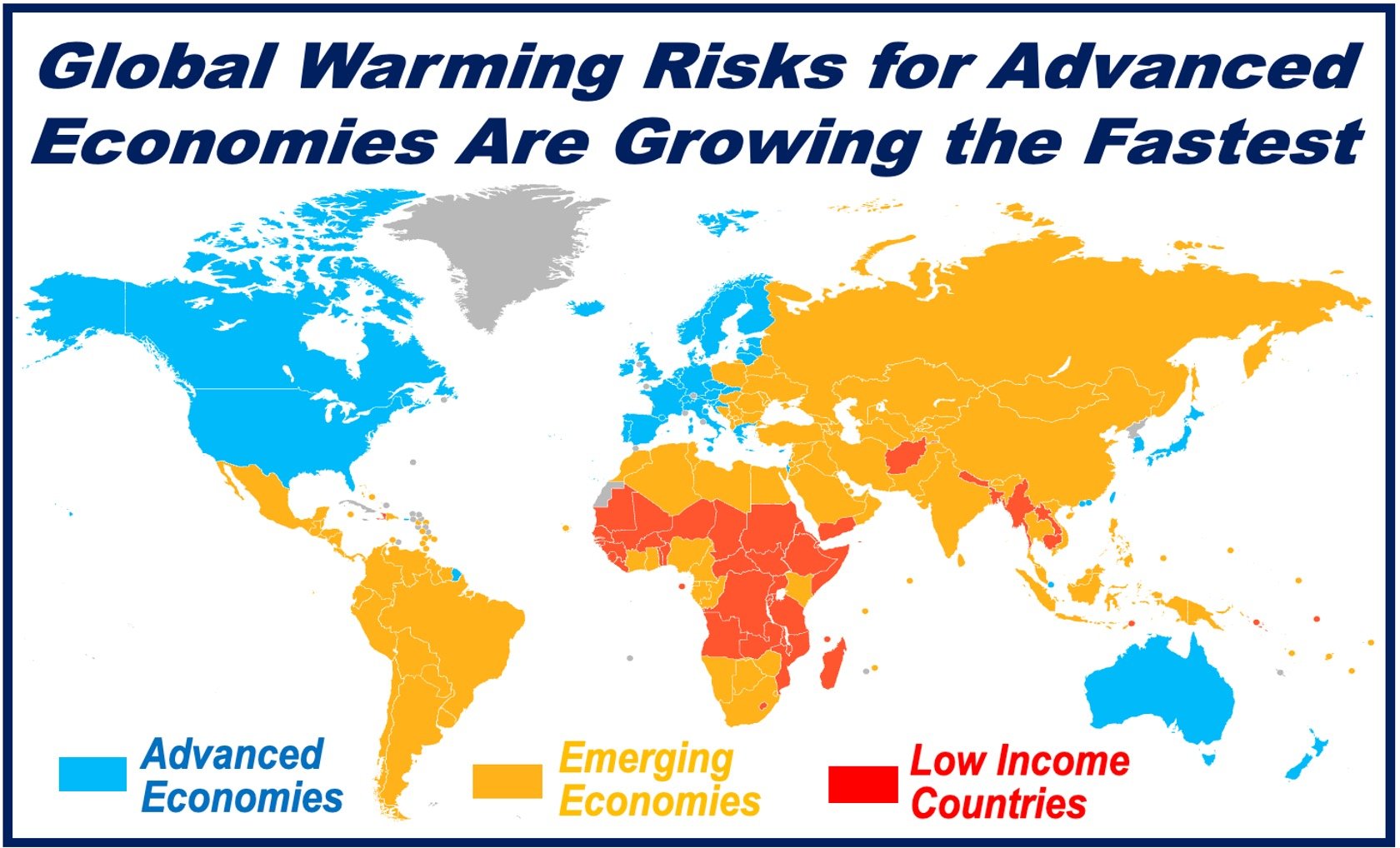A recent study from the Potsdam Institute for Climate Impact Research (PIK) in Germany examined how extreme weather, driven by global warming, is affecting production and consumption worldwide across different income levels. The researchers wrote about their study in the prestigious, peer-reviewed academic journal Nature Sustainability (citation below).
While previous studies have shown that the poorest populations remain the most vulnerable, this new research highlights that the economic risk for the *advanced economies is now increasing at a faster rate.
* The term ‘advanced economies‘ refers to developed and wealthy nations, including the US, Canada, Western Europe, Japan, South Korea, and Australasia.
Emerging economies, such as Brazil and China, are also particularly exposed to the negative effects of volatile weather and shifts in trade.

Wikipedia image adapted by Market Business News.
Global Supply Chains Affected
These nations face significant risks due to weather-related disruptions and unfavorable trade impacts. As the planet continues to heat up, the overall economic risks are expected to intensify, with ripple effects across global supply chains, influencing the availability of goods and services worldwide.
Anders Levermann, a Professor of Dynamics of the Climate System at PKI, said:
“In the next two decades, climate change will amplify economic risks caused by erratic weather patterns. While the poorest populations are still the most vulnerable, the pace of rising economic risk is now highest for wealthier countries like the US and those in the EU.”
“Consumers globally, regardless of income, will face growing difficulties if global warming is not addressed. Without a shift towards carbon neutrality, managing these challenges will become increasingly difficult.”
Image created by Market Business News.
Global Warming vs. Climate Change
Although many people use the terms ‘global warming’ and ‘climate change’ interchangeably, they refer to different aspects of environmental shifts.
-
Global Warming
Global warming specifically describes the long-term increase in Earth’s average temperature, largely due to rising levels of greenhouse gases in the atmosphere.
-
Climate Change
Climate change, however, covers a wider range of changes, including shifts in weather patterns, rainfall, and extreme events like droughts and storms.
Climate change may refer to either a gradual rise or fall in global temperatures, while global warming refers only to a gradual increase.
In short, global warming drives the broader phenomenon of climate change, leading to both hotter temperatures and more unpredictable weather conditions.
Citation
Lennart Quante, Sven N. Willner, Christian Otto, Anders Levermann (2024): Global economic impact of weather variability on the rich and the poor. Nature Sustainability. [DOI: 10.1038/s41893-024-01430-7]
